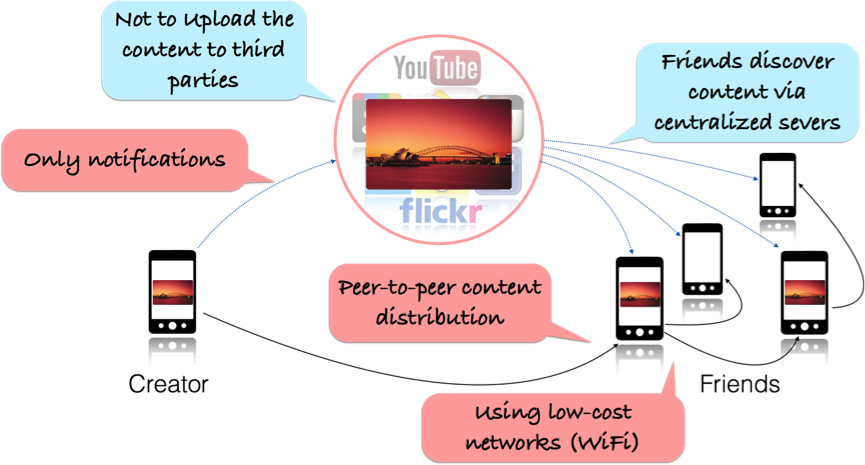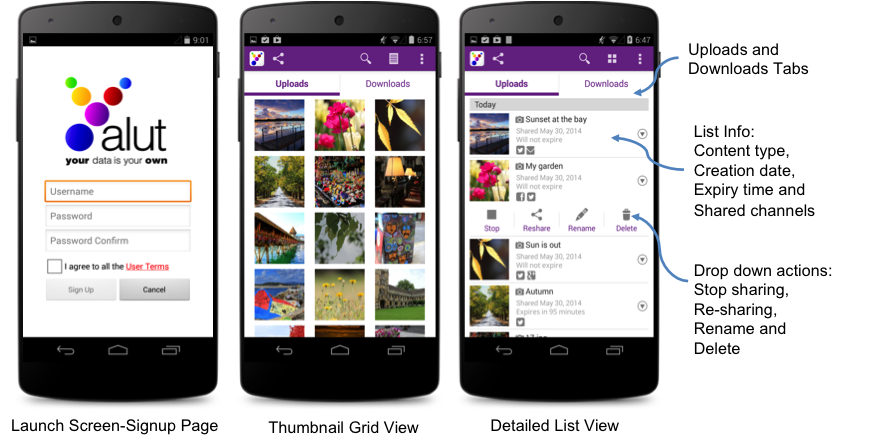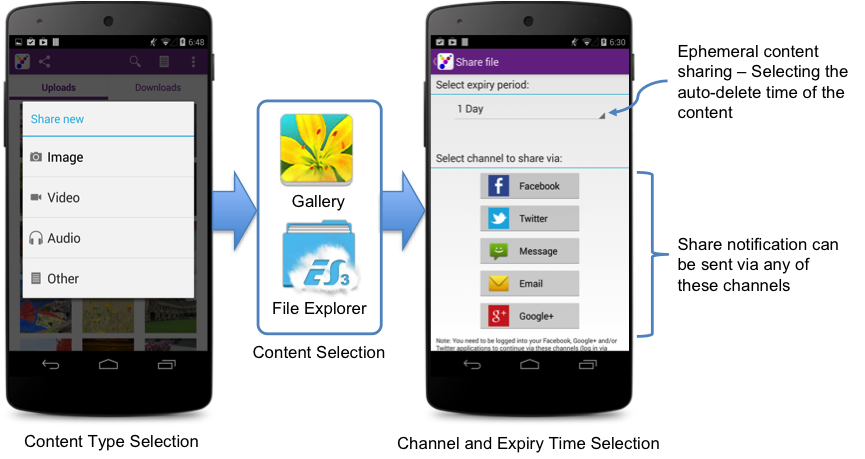Yalut: Cost-Efficient Privacy-Aware Social Networking
Smart mobile devices is being developed to create, consume and share a variety of user data with other users, which has led to exponential growth in the use of online social networking. Service providers are making available more free services, as they are able to monetize users’ data. Such monetization activities pose one of the greatest threats for users with respect to their privacy and control over their personal data. Therefore, it is vital to develop services that do not increase the cost and compromise the users’ privacy, and without breaking the existing digital services eco-system
Our Approach
The proposed system exploits three characteristics.
- The fact that even during peak hours the networks are under utilized in many locations and also the availability of other low-cost networks such as WLANs.
- The mobile users have spatio-temporal locality of content generation and consumption patterns.
- The modern mobile devices have large storage capacities, considerable processing power and a number of connectivity options.
The idea is to store the content in the users’ own device or their trusted friends’ devices and serve content from these devices using alternative networks or uncongested networks.
Overview of Yalut content sharing architecture
Results
This work proves that the content replication problem is NP-Hard and develops an algorithm for grouping devices to maximize content availability and minimize its replication [2, 4]. The algorithm based on a combination of a bipartite b-matching and a greedy heuristic, uses a set of dynamic time-aware centrality metrics to identify most influential users in creating the groups [3].
The proposed algorithm can be reduced to a maximum flow problem [2] and thus can be computed in linear time. The following figure shows an instance of the proposed algorithm in practice step-by-step.
(a) Example graph, (b) Maximum flow computation, (c) Edge pruning, (d) Solution of three selected groups for content replication
Outcomes
We demonstrated the feasibility of implementing distributed content sharing as an overlay service for the popular centralized social networking services on Android devices, Mac and Windows desktop platforms, namely Yalut [1]. Yalut has been released for public use on the Google Play Store and on the Yalut landing webpage.
Yalut Benefits
- Preserves your privacy because there is NO centralized authority to mine your data.
- Gives you control over your own data because it is not stored in a centralized authority.
- Support ephemeral content sharing by time coding the content so they are deleted from after the expiry time.
- Interacts with friends using existing popular social networking services.
- Cost savings on your cellular network data plan because it uploads and downloads content through lower-cost networks such as WiFi.
Pre-fetching allows to access your content offline (without internet connection) as the content is cache on the device and also enhance the service quality without the need for re-buffering
Yalut app interfaces
Yalut content sharing steps.
Selected Publications
[1] K. Thilakarathna, X. Guan, A. Seneviratne, “Yalut: User-centric Social Networking Overlay,” in ACM SIGMOBILE MobiSys’14 Demos, Jun 2014, USA.
[2] K.Thilakarathna, H.Petander, J.Mestre, and A.Seneviratne , “MobiTribe: Cost Efficient Distributed User Generated Con- tent Sharing on Smartphones,” IEEE Transactions on Mobile Computing, vol. 13, no. 9, pp. 2058–2070, Sep 2014.
[3] K. Thilakarathna, A. C. Viana, A. Seneviratne, and H. Petander, “Mobile social networking through friend-to-friend opportunistic content dissemination,” in ACM SIGMOBILE MobiHoc’13, Bangalore, India, 2013, pp. 263–266.
[4] K.Thilakarathna, H.Petander, J.Mestre, and A.Seneviratne,“Enabling Mobile Distributed Social Networking on Smartphones,” in Proc. of ACM/IEEE MSWiM’12, oct 2012, pp. 357–366.




